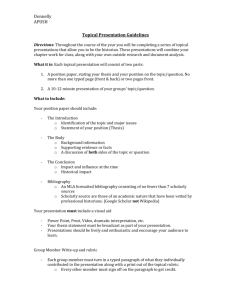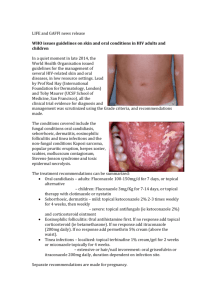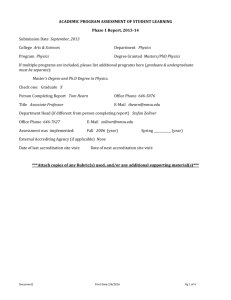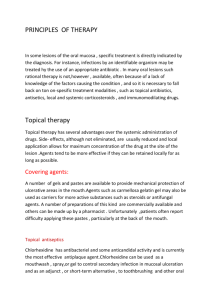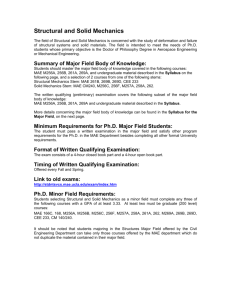For more information reference the Qualifying Exam
advertisement
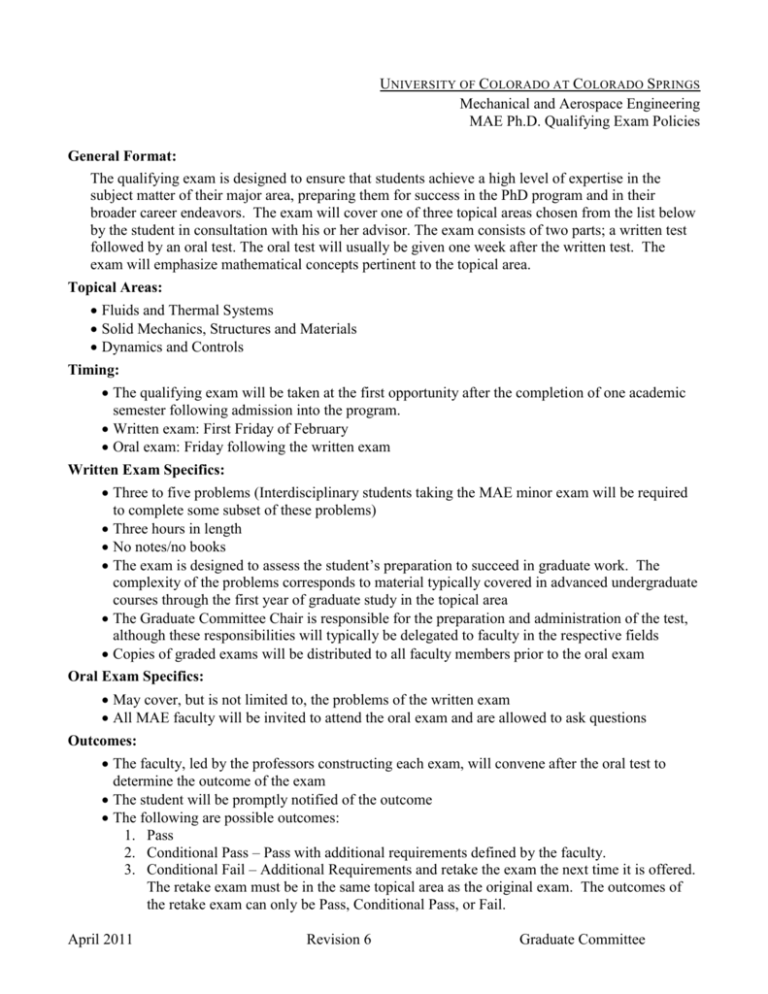
UNIVERSITY OF COLORADO AT COLORADO SPRINGS Mechanical and Aerospace Engineering MAE Ph.D. Qualifying Exam Policies General Format: The qualifying exam is designed to ensure that students achieve a high level of expertise in the subject matter of their major area, preparing them for success in the PhD program and in their broader career endeavors. The exam will cover one of three topical areas chosen from the list below by the student in consultation with his or her advisor. The exam consists of two parts; a written test followed by an oral test. The oral test will usually be given one week after the written test. The exam will emphasize mathematical concepts pertinent to the topical area. Topical Areas: Fluids and Thermal Systems Solid Mechanics, Structures and Materials Dynamics and Controls Timing: The qualifying exam will be taken at the first opportunity after the completion of one academic semester following admission into the program. Written exam: First Friday of February Oral exam: Friday following the written exam Written Exam Specifics: Three to five problems (Interdisciplinary students taking the MAE minor exam will be required to complete some subset of these problems) Three hours in length No notes/no books The exam is designed to assess the student’s preparation to succeed in graduate work. The complexity of the problems corresponds to material typically covered in advanced undergraduate courses through the first year of graduate study in the topical area The Graduate Committee Chair is responsible for the preparation and administration of the test, although these responsibilities will typically be delegated to faculty in the respective fields Copies of graded exams will be distributed to all faculty members prior to the oral exam Oral Exam Specifics: May cover, but is not limited to, the problems of the written exam All MAE faculty will be invited to attend the oral exam and are allowed to ask questions Outcomes: The faculty, led by the professors constructing each exam, will convene after the oral test to determine the outcome of the exam The student will be promptly notified of the outcome The following are possible outcomes: 1. Pass 2. Conditional Pass – Pass with additional requirements defined by the faculty. 3. Conditional Fail – Additional Requirements and retake the exam the next time it is offered. The retake exam must be in the same topical area as the original exam. The outcomes of the retake exam can only be Pass, Conditional Pass, or Fail. April 2011 Revision 6 Graduate Committee 4. Fail with no opportunity to retake the exam. Topic List: The following lists provide the general topical areas for which the student is expected to demonstrate mastery. Although not specifically listed, a strong understanding of the requisite mathematics for each area is also expected. Fluids and Thermal Systems Incompressible Flow fluid statics momentum and energy eqns dimensional analysis pipe flow external flow fluid mechanics measurements navier stokes eqns boundary layer flow Basic Compressible Flow 1-D isentropic flow relations Mass, momentum and energy equations Shock relations Heat Transfer 1-D S.S. conduction 2-D S.S. conduction transient conduction internal flow convection external flow convection free convection radiation fundamentals radiative exchange between surfaces Thermodynamics property relationships for ideal gases property relationships near the saturation region first law for closed systems first law for open systems second law principles second law for closed and open systems gas and vapor power cycles refrigeration cycles April 2011 Revision 6 Graduate Committee Solid Mechanics, Structures and Materials Theories of Stress and Strain. Linear Stress-Strain-Temperature Relations. Inelastic Material Behavior. Torsion. Bending of Straight Beams. Elastic and Inelastic Stability of Columns. Stress Concentrations. Fracture Mechanics. Fatigue Dynamics and Control Dynamics Vector Kinematics and Dynamics of a Particle, System of Particles and Rigid Body Principle of Work and Energy Principle of Impulse and Momentum (Linear and Angular) Collisions Inertia tensors Constrained motion Generalized coordinates Virtual Work Lagranges Equations Controls Reduction of multiple subsystems Stability Steady-state error Root Locus techniques including design Frequency response techniques including design State-space controller design April 2011 Revision 6 Graduate Committee


